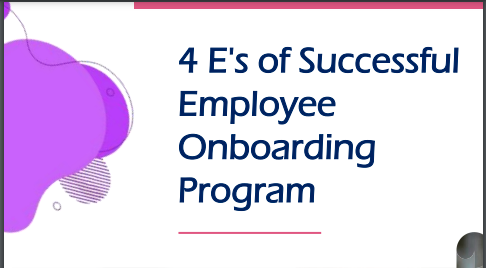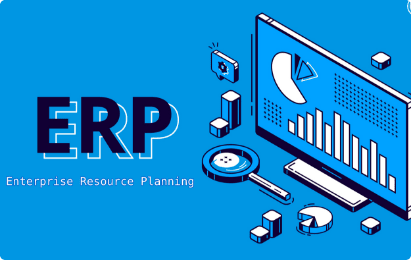
Blog
Orane’s blog posts keeping you up to speed with what’s hot in the world of business.
4 E’s of Successful Employee Onboarding Program

Introduction:
Onboarding is the cumulative process of assimilating the new hire into the organization. After effective recruitment & selection, one of the most important ways that organizations can improve the effectiveness of their talent management is through the strategic use of – Onboarding. Onboarding is significantly more than just a mere introduction to people, organization, and facilities over a couple of days. It is imperative to teach new hires about organization values, mission, beliefs and enable them to be successful in the long-term goals that help them to become a long-lasting employee. Onboarding should help new hires to integrate within the organization and facilitate the acquisition of the right set of knowledge & skills to carry out their new responsibilities successfully.
Why is it Important to get onboarding right?
Onboarding is the foundation. It gives new employees a glimpse into what it’s really like to work somewhere and provides them with information about whether or not they made the right decision to accept the job. A lack of a well-structured onboarding process can undermine your engagement efforts before they’ve even begun. 30% of job seekers have left a job within the first 90 days, citing company culture and the day-to-day job not meeting expectations as two of the most common reasons for leaving according to a recent study in the US. To reduce the fear and uncertainty of starting a new job, it’s important that new employees are made to feel welcome, have plenty of opportunities to meet with the wider organization, and have something to focus their efforts on from the very beginning. You can assign new employees a buddy, who can act as a bridge to other people in the organization and share information that might not be available through more
formal channel.
4 E’s of Employee Onboarding Program:
➢ Onboard well.
➢ Exterminate the paperwork.
➢ Be sure the new hire gets introduced to everyone they’ll be working directly with
➢ 30-, 60- and 90-day goals for them to achieve
➢ Explain their compensation by presenting them with a sum of the value that includes salary, healthcare, and the monetary value of additional benefits they receive.
➢ Connect them on social media
➢ Give them a buddy.
➢ Survey and get feedback
➢ Employees want special training to advance their careers
➢ Offering training and development increases employee retention
➢ Offering educational training and development increases profits
➢ Quality of work
➢ Level of creativity
➢ Amount of consistent improvement
➢ Customer and peer feedback
➢ Sales revenue generated
➢ Responsiveness to feedback
➢ Ability to take ownership
➢ Percentage of tasks completed on time
➢ Being on time and budget
Provisioning of assets enables them to focus on their tasks.
➢ Understand their challenges.
➢ Accelerate their learning.
➢ Make them part of the team.
➢ Connect them with key stakeholders.
➢ Give them direction.
➢ Help them get early wins.
➢ Coach them for success
Some tips to keep in mind while hiring virtually:
– Virtual Introduction
– Insulate Culture
– Gamify the onboarding process
– Feedbacks and survey for reports and analytics
– Assign a buddy program
Subscribe to our communication
You agree to receive newsletters, marketing communication and latest developments from us.

6 Tips to Boost Your Business Performance
- August 19, 2022

How ERP Implementation is Essential for Businesses? – Top 5 Reasons
- August 19, 2022

Take your Data into next level
- August 19, 2022

Rise with SAP: Business Benefits
- August 19, 2022

SAP Masterdata Management
- August 19, 2022

